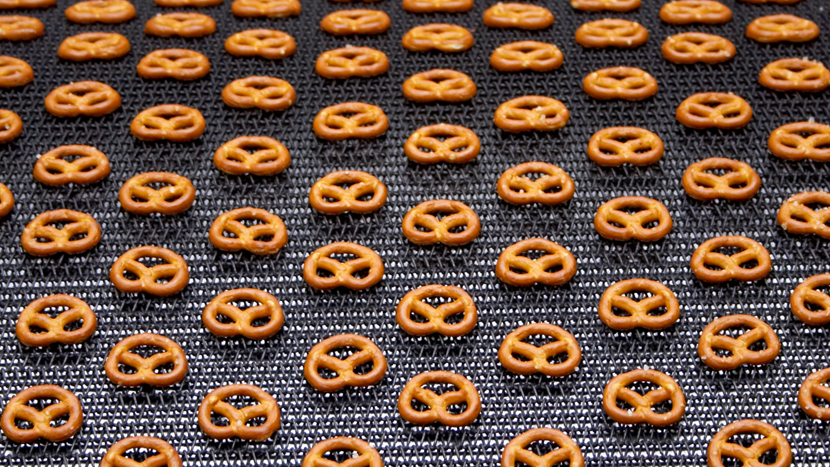Flatlining confidence among food manufacturers offers stark warning ahead of Budget

- Confidence among food and drink manufacturers continues to flatline at -40% according to the FDF State of Industry survey, as it fails to recover from a rapid post-Budget decline
- 84% of manufacturers say that the ongoing impact of recent government policies is one of their biggest concerns for the next 12 months, while two fifths (41%) expect headcount to fall in the year ahead
- With production costs up 6.3% in the last twelve months and expected to rise a further 3.6% in the next year, industry is calling for government to ensure its upcoming Budget doesn’t add further pressure to this already squeezed sector
Confidence among food and drink manufacturers remains concerningly low, with negative confidence for a fifth consecutive quarter according to the latest State of Industry survey from the Food and Drink Federation (FDF). At -40%, confidence among manufacturers has remained low and failed to recover since it plummeted to -47% at the end of 2024 following the Budget1.
The impact of that Budget and other recent policy decisions continue to concern food and drink manufacturers. More than eight in ten (84%) said that the ongoing financial impact of recent government policies – such as National Insurance changes and the Upcoming Extended Producer Responsibility (EPR) packaging levy – was one of their biggest concerns for the year ahead, while nearly two thirds (63%) said it was a decline in consumer confidence.
The cost of ingredients and commodities (50%), a shortage of skilled workers (37%), the cost of energy (32%), and government prioritising other sectors for support (21%), were all also major causes for concern for the UK’s food and drink manufacturers.
With these mounting pressures from all sides, it’s no surprise that average production costs increased 6.3% in the last 12 months, and are expected to rise a further 3.6% in the year ahead. This comes after a period of record high inflation, with food and drink prices 36% higher than they were 5 years ago and with rates of inflation steadily on the rise over the last year2. As manufacturers continue to face pressures on all front, these rising costs will inevitably filter down to the prices shoppers see in the supermarkets.
Meanwhile, concerningly, two fifths of businesses (41%) are expecting to decrease their employee headcount over the next 12 months.
Karen Betts, Chief Executive, The Food and Drink Federation (FDF), said:
“Businesses are continuing to grapple with the impact of last year’s Budget alongside steadily rising input costs, so it comes as no surprise that business confidence across food and drink manufacturers remains strikingly low.
“Energy, commodity, transport, employment and other costs are rising across the board, on top of the growing costs of regulation. As before, companies will try to shield consumers for as long as possible, but this means that inevitably shop prices will rise. These are particularly marked at the moment in meat, dairy, chocolate and coffee.
“It’s fair to say too that companies are nervous about this autumn’s Budget. It’s critical that the Chancellor does not increase costs to hard-pressed businesses further, but instead acts decisively to attract new investment into our sector.”
Growth in the UK’s food and drink manufacturing industry has stalled, with production levels in 2024 just 1.5% higher than 2009 levels3, when the sector last saw a period of sustained growth. With business confidence remaining low and many companies concerned about the outlook for investment, this risks creating a vicious cycle of flatlining investment levels and low productivity.
However, with a potential £14bn growth opportunity available to the sector through productivity gains4, it’s possible to break out of this concerning trend. Government can do this by making policy decisions that will drive the right conditions to attract the investment our sector needs. This could include not increasing the current rates that industry pays on taxes such as the Plastic Packaging Tax (PPT) and the Soft Drinks Industry Levy (SDIL).
Read the State of Industry report.
-Ends-
Notes to Editors
- Source: FDF Q2 2025 State of Industry report. Confidence over the last five quarters:
|
Q2 2025 |
-40% |
|
Q1 2025 |
-43% |
|
Q4 2024 |
-47% |
|
Q3 2024 |
-6% |
|
Q2 2024 |
-6% |
- Food and drink price inflation has been steadily on the rise in 2025, outpacing the overall rate of inflation (CPI) throughout the year. It has seen a sharp increase when compared to the previous 12 months, reaching 4.9% in July 2025, compared to 1.5% in July 2024
- Source: ONS
- Source: Future Factory, Newton
About FDF
The Food and Drink Federation (FDF) gives a voice to the food and drink manufacturing industry – the UK’s largest manufacturing sector. We contribute over £38 billion to the country's economy, supporting half a million jobs and driving growth at home and abroad. For more information on the FDF and the industry we represent, download our manifesto here or visit www.fdf.org.uk.
For further enquires please contact the FDF Press Office or contact 020 7420 7140.
